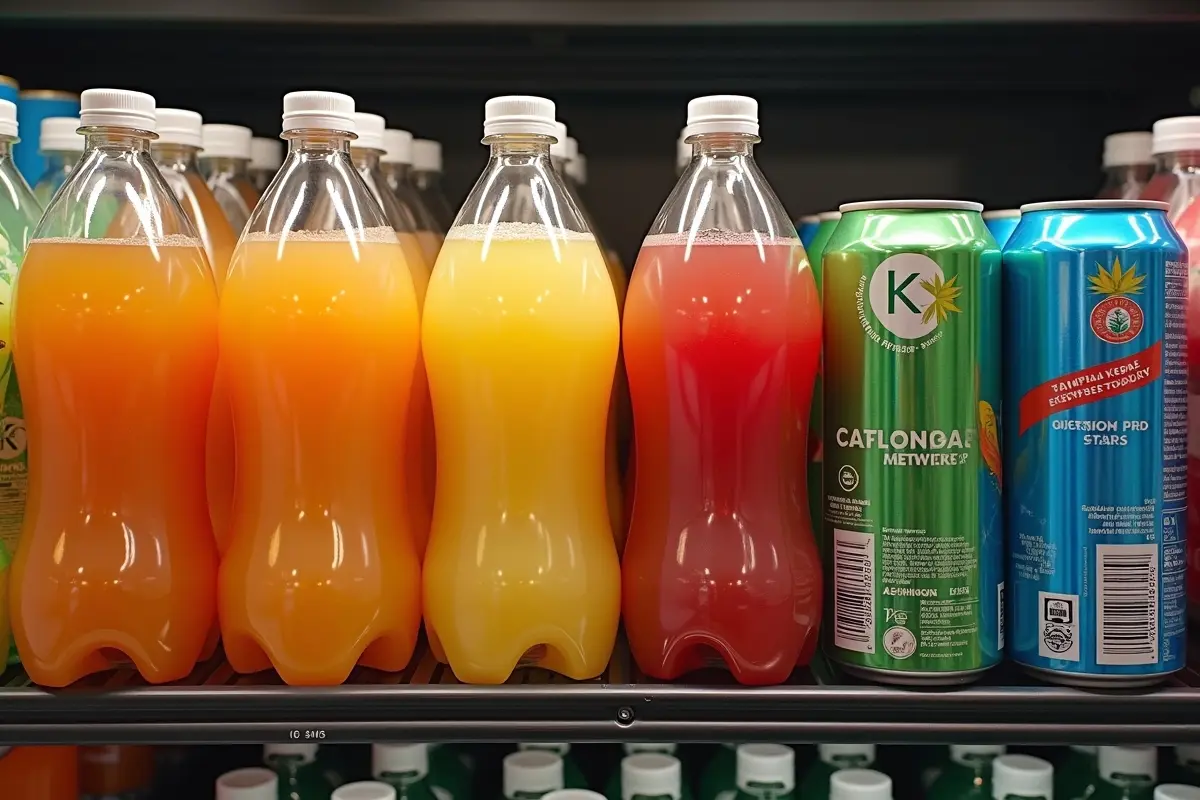
There once was a time when opening a bottle meant knowing a product had been potentially pre-opened and tampered. But not since the 1980s when there were a slew of incidents involving product tampering which scared consumers and manufacturers alike. The beverage industry needed to figure out a way to ensure – visibly, obviously – what you’ve bought has not been a product of tampering.
Enter tamper-evident closures. They did everything for the packaging dynamic when it comes to trust.
Contents
- 1 The Problem Pre-1980s
- 2 How Roll-On Technology Solved the Problem
- 3 Why Aluminum Became the Material of Choice
- 4 The Carbonation Component
- 5 What’s Done During Manufacturing
- 6 How It Visually Trusts Someone
- 7 Why Some Products Still Use Other Systems
- 8 What Happens When Beverage Brands Don’t Get It Right
- 9 What Consumers Should Observe
- 10 A Standard That Became Expected
- 11 Why This Matters Now
The Problem Pre-1980s
Prior to tamper-evident solutions, closure systems on beverages were flimsy caps. Metal and plastic and sometimes rubber served as a way to seal a product, but there was no sure way of knowing someone opened, resealed, and decided to put an unwanted product back on the shelf. The only thing consumers had to trust was that what they pulled off the shelf was what the manufacturer had originally put there.
For the beverage industry, this called for something that would be visible and foolproof. If someone attempted to tamper with it, it needed to break, showing clear signs that somebody had done something stupid.
How Roll-On Technology Solved the Problem
The solution came in closures that self-destructed upon opening. ROPP caps (roll-on-pilfer-proof) became an effective solution like no other because they’re literally formed onto the bottle during the manufacturing process. The aluminum shell roll-on cap is rolled in and threaded with a tamper band, which breaks off during first opening when a consumer simply twists.
When that band breaks, however, there’s no going back. It can never be reinstalled without damage.
Why Aluminum Became the Material of Choice
Aluminum became the ideal closure material for tamper-evident strategies because it is lightweight yet pliable enough to close nicely around the threading of a bottle while also being able to hold strong enough for pressure without cracking during transport. It’s not prone to rusting like other metals, and it’s light enough for shipping to be beneficial.
But beyond that, it’s also aesthetically pleasing. It appeals to consumer expectations of quality products – so much so that craft soda and premium spirits use metal closures on all their vessels.
The Carbonation Component
With carbonated beverages, however, there is also pressure at play. Without proper closure systems, things can go flat. No one wants to open a bottle of Coke and find it’s gone completely flat with no carbonation (and an off-taste). This is where modern solutions come into play with air-tight seals that keep CO2 from escaping in transition.
The combination of thread and liner ensures a double whammy of protection from gas loss – but here is where packaging aesthetics play a role in sensibilities beyond safety.
What’s Done During Manufacturing
The process by which manufacturers apply the ROPP cap is instantaneous – the bottles go through a capping machine where an aluminum shell is applied, the threads are rolled in alignment with the bottleneck, and the tamper band is scored in one fail swoop movement.
Not only is this an efficient use of time that creates a solid seal which alerts someone when it’s broken – but most consumers never think about how this process occurs.
In reality – because these caps are literally rolled on and formed to each bottle separately – there’s no chance of pre-opening since the closure never existed as a functional closure until it’s applied to that bottle.
How It Visually Trusts Someone
This is why tamper-evident packaging works: it gives consumers peace of mind on their end. They don’t have to question whether or not something is safe – they can visually see it. The broken ring around the closure, the separated band remains intact. These are visual confirmations that you’re the first person who has ever opened this product.
This also works in favor of retailers who do not want liability if a customer attempts to return an opened product because it was “broken”. That broken tamper band tells the whole world otherwise.
Why Some Products Still Use Other Systems
Not all beverage systems rely on the same closures – but glass bottles rely on crown caps (those are the metal ones you need to use a bottle opener for) and once again, those closures have bottles with wrappers or sleeves with removable bands prior. Plastic bottles tend to either use breakaway rings that snap off from the cap while opening for first time use.
These differences depend on the product, style of bottle and configuration systems – but they all serve similar purposes that prove items have not been compromised.
What Happens When Beverage Brands Don’t Get It Right
When beverage brands skimp on quality closure systems, they suffer. Product recalls are extraordinarily expensive – not only in terms of logistics but also consumer trust and brand reputation. When you lose faith with someone who no longer knows if your items are safe for consumption, getting back into their good graces is brutal.
It’s not worth it for larger brands when established systems have proven successful time and time again – better to stick with what’s known than attempt to save on costs in other avenues.
What Consumers Should Observe
This should be automatic when consumers purchase beverages – but if there’s any broken tamper band or missing top or pieces left behind, don’t buy it. Most reputable manufacturers include additional integrities – shrink wraps, safety seals or printed bands – to add another level of evidence.
This isn’t just for show; it’s show because an established system knows consumers need to trust what’s inside.
A Standard That Became Expected
Tamper-evident solutions are a crisis response turned baseline expectation. Now, any beverage without it seems suspect. This isn’t optional – it was clear that it successfully remedied all reasons for creating it in the first place; therefore, it’s now par for course.
It’s interesting how quickly products shifted – not long after consumers got used to ROPP caps becoming standard that they stopped purchasing products that didn’t have them; through consumer choice, the market regulated itself.
Why This Matters Now
Even though quality control measures exist today regardless of what happened back then, when something goes wrong, tamper-evident packaging is on the front lines for consumer safety. It’s the only thing that can’t be hidden or missed when someone tries compromising something.
For beverage manufacturers, it’s a competitive necessity. Your packaging communicates quality before someone even tastes your product, Never get it wrong; your reputation depends on it.



Leave a Reply
You must be logged in to post a comment.